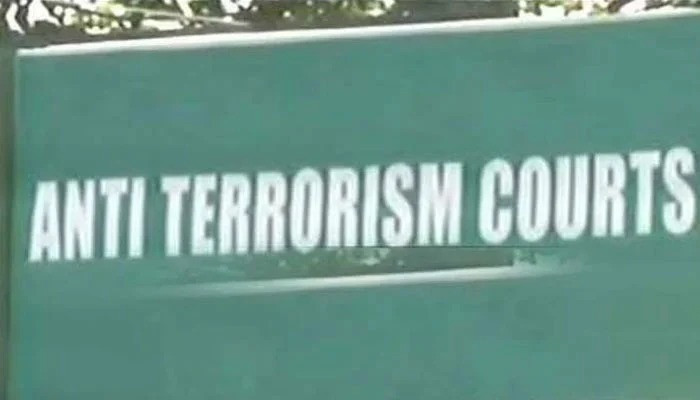Imran Khan Latest News: May 9 Riot Cases to be Heard by ATC
The May 9 riot cases have sparked a debate over the role of military courts in trying civilians, with many arguing that the Supreme Court's ruling undermines the principles of justice and fairness, and could have far-reaching implications for the country's democratic institutions and human rights record.

A crucial hearing of 14 May 9 rioting cases is set to be held on Saturday by Rawalpindi's Special Anti-Terrorism Court, amidst controversy over the Supreme Court's decision to allow civilians to be tried in military courts, sparking concerns over erosion of civil liberties and judicial independence.
The Supreme Court's ruling has overturned its previous judgment that deemed trials of civilians in military courts "unconstitutional", with the 5-2 verdict restoring key sections of the Pakistan Army Act that allow military jurisdiction over certain civilian offences. This decision has been met with criticism from rights groups, lawyers, and politicians, including the Pakistan Tehreek-e-Insaf (PTI) party, led by former PM Imran Khan, who has alleged that hundreds of party members were arrested without evidence.
The police have requested an ATC to conduct a polygraphic and photographic test of Imran Khan in connection with the May 9 cases, while 20 PTI workers have already been convicted and sentenced to six months in jail and a fine of Rs75,000 each for the Tarnol Railway Station attack. The GHQ attack case remains incomplete, with only 25 out of 119 witnesses' statements recorded, and the defense has not cross-examined any witnesses.
The ruling has also been criticized by lawyers, who pointed out the absence of an independent forum of appeal against military court convictions, and the lack of reasoning in the SC's ruling. They argued that the decision was an institutional inconsistency, undermining the trust essential for the apex court to exercise its writ. The decision comes at a time of escalating tensions with India after the Pahalgam terror attack, and some analysts see it as a strategic push for General Asim Munir to consolidate his power.
As the hearing of the May 9 riot cases approaches, concerns over the implications of the Supreme Court's ruling on civil liberties and judicial independence continue to grow, with many criticizing the decision as a "weaponised" move to suppress dissent and undermine the rights of civilians.